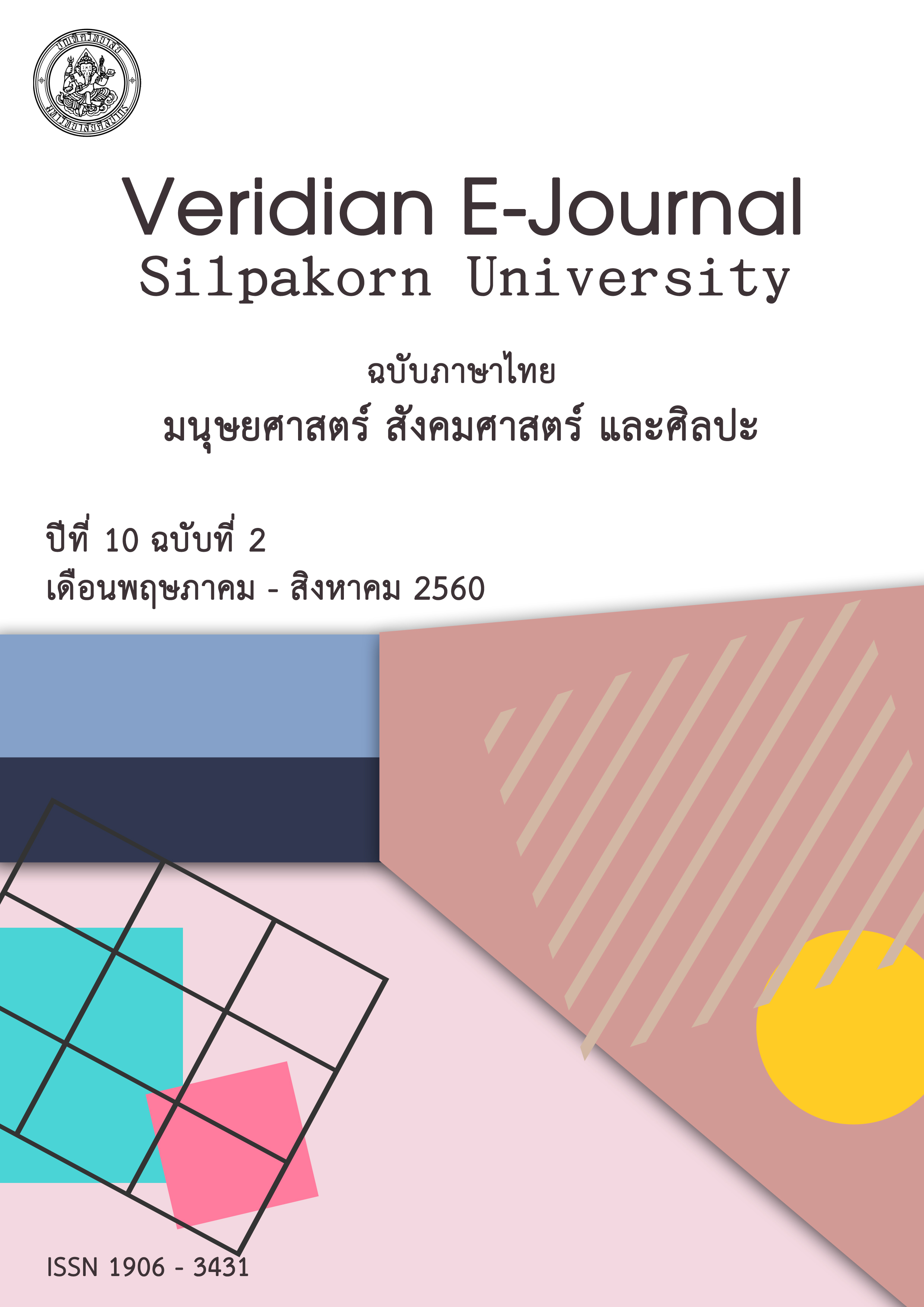ทิศทางการจัดการศึกษาในศตวรรษที่ 21
Main Article Content
Abstract
โลกกำลังเปลี่ยนแปลง ระบบการศึกษาในปัจจุบันต้องมีการเปลี่ยนแปลงเพื่อตอบสนองความต้องการของสังคมโลก โรงเรียนต้องเตรียมพร้อมผู้เรียนสำหรับโลกในศตวรรษที่ 21 โดยโรงเรียนจำเป็นต้องเปลี่ยนวิธีการที่จะให้ความรู้แก่ผู้เรียนด้วยการจัดการศึกษาให้มีคุณภาพสูงที่มุ่งเน้นการพัฒนาผู้เรียนในภาพรวมมากกว่าความสำเร็จทางวิชาการแต่เพียงอย่างเดียว ในศตวรรษที่ 21 โรงเรียนต้องสร้างหลักสูตรที่ช่วยให้ผู้เรียนเชื่อมความรู้และทักษะต่อกับโลกและเข้าใจถึงปัญหาที่เกิดขึ้นในโลก โรงเรียนควรเป็นสถานที่ใช้เป็นศูนย์รวมการประสานระหว่าง ครู และผู้เรียนในการติดต่อกับชุมชนและสังคม ครูในสภาพแวดล้อมใหม่นี้จะเป็นผู้ทำกิจกรรมการเรียนการสอนน้อยลงและเป็นผู้อำนวยความสะดวกในการช่วยเหลือให้ผู้เรียนจัดการเรียนรู้ข้อมูลด้วยตนเองมากขึ้น จะทำให้ผู้เรียนสามารถเปลี่ยนความรู้เป็นภูมิปัญญาของตนเองการเรียนรู้ของผู้เรียนจะเกิดขึ้นได้ในสภาพแวดล้อมการเรียนรู้ที่ดีมีการเรียนรู้ด้วยวิธีการแก้ปัญหาและการควบคุมตนเอง ผู้เรียนทุกคนในศตวรรษที่ 21 ต้องสามารถคิดแก้ปัญหา คิดวิเคราะห์ สื่อสารได้ และตระหนักรู้สิ่งต่างๆได้ทั่วโลก รวมทั้งมีความสามารถทางเทคนิค โรงเรียนต้องกำหนดให้ผู้เรียนมีทักษะและความสามารถที่ให้ผู้เรียนสามารถคิดสิ่งต่างๆได้ด้วยตัวเอง มีทักษะด้านความรู้ความเข้าใจ ทักษะการมีปฏิสัมพันธ์กับบุคคล และทักษะภายในตัวบุคคล ซึ่งทักษะเหล่านี้เป็นสิ่งสำคัญสำหรับการทำงานและเป็นพลเมืองที่มีชีวิตอยู่ในศตวรรษที่ 21 โรงเรียนควรปรับวิธีการเรียนการสอนที่เน้นให้ผู้เรียนเรียนด้วยตนเอง และทำงานเป็นกลุ่มเพื่อพัฒนาทักษะการเรียนรู้และนวัตกรรม ทักษะชีวิตและอาชีพทำงาน และทักษะด้านสารสนเทศ สื่อ และเทคโนโลยี บทความนี้ระบุถึงผู้บริหาร และครูต้องปลูกฝังความรู้และทักษะที่จำเป็นโดยแสดงให้ผู้เรียนเห็นว่าความรู้ และทักษะนี้ใช้กับโลกแห่งความเป็นจริงได้ และต้องพยายามเพิ่มความใฝ่รู้ของผู้เรียน ซึ่งจะช่วยให้ผู้เรียนกลายเป็นผู้เรียนรู้ตลอดชีวิต โรงเรียนควรมีกลยุทธ์ในการพัฒนาผู้เรียนโดยคำนึงถึงถึงแรงผลักดันที่ทำให้เกิดการเปลี่ยนแปลง เช่น โลกาภิวัตน์ การเปลี่ยนแปลงเทคโนโลยีอย่างรวดเร็วที่เกิดขึ้นทุกวัน การเปลี่ยนแปลงทางด้านประชากร และการออกแบบการเรียนการสอน โรงเรียนสามารถช่วยให้ผู้เรียนพัฒนาความรู้ ทักษะ และความสามารถที่จำเป็น เพื่อประสบความสำเร็จในการเผชิญหน้ากับเหตุการณ์จริงทางสังคม และเศรษฐกิจในยุคโลกาภิวัฒน์ ดังนั้นโรงเรียนควรมีการจัดการรวมความรู้และทักษะที่จำเป็นเข้าไว้ด้วยกัน มีระบบสนับสนุนที่ได้มาตรฐาน มีการประเมิน หลักสูตรและการเรียนสอนการพัฒนาวิชาชีพครู การพัฒนาสภาพแวดล้อมการเรียนรู้ การมีส่วนร่วมของผู้เรียนในกระบวนการเรียนรู้ และเมื่อผู้เรียนจบการศึกษาพร้อมที่จะเจริญเติบโตในโลกดิจิทัลที่เชื่อมต่อกันได้ทั่วโลก
The world is changing, the most current educational systems need to experience a transformation to meet the needs of a global society. In order to prepare the learners for the 21st century, schools need to change the way that educate them. In the 21st century schools seek to provide a high quality education focused on developing the ‘whole child’ rather than just their academic achievement. Schools must create a curriculum that will help learners connect with the world and understand the issues that our world faces. Schools will become nerve centers, a place for teachers and learners to connect with those around them and their community. Teachers in this new environment will become less instructors and more orchestrators of information, giving children the ability to turn knowledge into wisdom. The learner learning needs to occur within powerful learning environments to provide active, problem-based and self-directed. Every learners in the 21st century needs to be able to critically think, problem solve, collaborate, communicate, innovate, be globally aware, and be technically literate. Schools have to set learners up with skills and capacities to allow them to figure things out on their own. The cognitive, interpersonal and intrapersonal skills are essential for engaged citizenship, work and life in the 21st t century. Schools have begun adopting life pedagogy that includes working with learners to develop learning and innovation skills, life and career skills, information, media and technology skills. The paper argues that administrators and teachers need to cultivate and maintain the learner's interest in the material by showing how this knowledge applies in the real world. They must also try to increase their learner's curiosity, which will help them become lifelong learners. They should develop careful strategies that consider the drivers of change such as globalization, rapid technological changes occurring daily, demographic shifts, and instructional design. Schools are largely capable of helping most learners develop the knowledge, skills, and competencies needed to successfully confront the social and economic realities of the global times. When a school builds on this foundation, combining knowledge and skills with the necessary support systems of standards, assessments, curriculum and instruction, professional development, and learning environments - students are more engaged in the learning process and graduate better prepared to thrive in today’s digitally and globally interconnected world.

